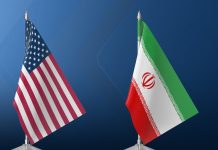The Jordanian military said Thursday that troops have killed 27 suspected smugglers attempting to enter the country from neighboring Syria with large quantities of amphetamines during a snowstorm.
The report on the army’s website said that it had thwarted several suspected attempts to smuggle drugs into Jordan from Syria and that narcotics were sized in separate interventions that also left several people wounded.
Others also carrying drugs fled back into Syria during the attempt in one of an increasing number of such incidents over the past year that had led the army to toughen its rules of engagement with smugglers.
The army has also found large quantities of drugs – commonly an amphetamine known as Captagon – hidden in Syrian trucks passing through Jordan’s main border crossing to the Gulf region.
The military said that it was “continuing to apply the newly established rules of engagement and will strike with an iron fist and deal with force and firmness with any infiltration or smuggling attempts to protect the borders,” as The Associated Press (AP) reported.
Earlier this month, the military said an army officer was killed in a shootout with smugglers along the long porous border with Syria.
Jordan is home to more than 650,000 Syrian refugees who fled the decadelong civil war.
In September, Syrian and Jordanian officials discussed border security after Syrian regime forces captured rebel-held areas along the Jordanian frontier. A month later, Jordan’s King Abdullah II spoke with Syria’s Bashar Assad for the first time in a decade after the two countries reopened a key border crossing.
According to Reuters, Jordanian officials said Lebanon’s Iran-backed Hezbollah group and militias who control much of southern Syria are behind the surge in smuggling. Hezbollah denies the accusations.
An illegal drug industry has flourished in Syria after 10 years of civil war. In recent years, the Arab Mediterranean country has emerged as a hot spot for making and selling Captagon. Both Syria and neighboring Lebanon have become gateways for drugs to the Middle East, particularly the Gulf.
The U.N. Office of Drugs and Crime said in a 2014 report that the amphetamine market is on the rise in the Middle East, with busts mainly in Saudi Arabia, Jordan and Syria accounting for more than 55% of amphetamines seized worldwide. -Agencies




